General description
THAP11 (Ronin) is a transcriptional repressor which is predominantly expressed in embryonic stem (ES) cells. It contains a THAP-type zinc finger domain which is characteristic of the THAP 11 family members. In ES cells, THAP11 interacts with the transcriptional co-regulator HCF-1, to recruit chromatin-modifying proteins such as members of the polycomb family of proteins, to induce gene repression. THAP11 targets genes involved in metabolism, transcriptional initiation, and messenger RNA splicing. It plays an important role in maintaining the pluripotent state of ES cells.
Immunogen
Recombinant protein corresponding to human THAP11.
Application
Anti-THAP11 Antibody is a highly specific rabbit polyclonal antibody, that targets Ronin & has been tested in western blotting, IP & IHC.
Research Category
Epigenetics & Nuclear Function
Research Sub Category
Transcription Factors
Western Blotting Analysis: A representative lot of an affinity purified version of this antibody detected THAP11 in tested cell lysates (Parker, J. B., et al. (2012). Mol Cell Biol. 32(9):1654-1670.).
Immunoprecipitation Analysis: A representative lot of an an affinity purified version of this antibody immunoprecipitated THAP11 in tested cell lysates (Parker, J. B., et al. (2012). Mol Cell Biol. 32(9):1654-1670.).
Chromatin Immunoprecipitation Analysis: A representative lot of an an affinity purified version of this antibody immunoprecipitated THAP11 in SW620 cell lysates (Parker, J. B., et al. (2012). Mol Cell Biol. 32(9):1654-1670.).
Immunohistochemistry Analysis: A representative lot of an an affinity purified version of this antibody detected THAP11 in normal colon epithelium and colon adenocarcinoma tissues, and in lymph node metastasis tissues (Parker, J. B., et al. (2012). Mol Cell Biol. 32(9):1654-1670.).
Quality
Evaluated by Western Blotting in HUVEC cell lysate.
Western Blotting Analysis: A 1:1,000 dilution from a representative lot detected THAP11 in 10 µg of HUVEC cell lysate.
Target description
~45 kDa observed. Uniprot describes a molecular weight at 35 kDa However, this protein may be observed at ~45 kDa upon forming a complex with HCF-1. (Parker, J. B., et al. (2012). Mol Cell Biol 32(9):1654-1670.; Spanu, P. (1997). Gene. 193(1):89-96.).
Physical form
Flow through from affinity depleted rabbit polyclonal serum containing 0.05% sodium azide.
Unpurified
Storage and Stability
Stable for 1 year at -20°C from date of receipt.
Handling Recommendations: Upon receipt and prior to removing the cap, centrifuge the vial and gently mix the solution. Aliquot into microcentrifuge tubes and store at -20°C. Avoid repeated freeze/thaw cycles, which may damage IgG and affect product performance.
Other Notes
Concentration: Please refer to the Certificate of Analysis for the lot-specific concentration.
Disclaimer
Unless otherwise stated in our catalog or other company documentation accompanying the product(s), our products are intended for research use only and are not to be used for any other purpose, which includes but is not limited to, unauthorized commercial uses, in vitro diagnostic uses, ex vivo or in vivo therapeutic uses or any type of consumption or application to humans or animals.
biological source: rabbit. Quality Level: 100. antibody form: serum. antibody product type: primary antibodies. clone: polyclonal. species reactivity: mouse, human, rat. technique(s): ChIP: suitable, immunohistochemistry: suitable, immunoprecipitation (IP): suitable, western blot: suitable. NCBI accession no.: NP_065190. UniProt accession no.: Q96EK4. shipped in: wet ice. target post-translational modification: unmodified. Gene Information: human ... THAP11(57215). Storage Class Code: 10 - Combustible liquids. WGK: WGK 1.Shipping Information:
Dry Ice Surcharge & Ice Pack Shipments: $40
More Information: https://cenmed.com/shipping-returns
- UPC:
- 51202400
- Condition:
- New
- Availability:
- 3-5 Days
- Weight:
- 1.00 Ounces
- HazmatClass:
- No
- MPN:
- ABE567
- Temperature Control Device:
- Yes












